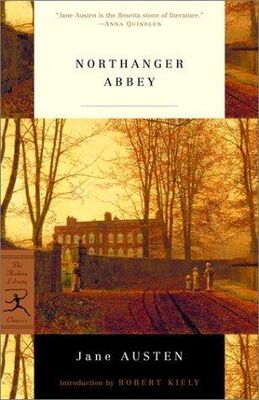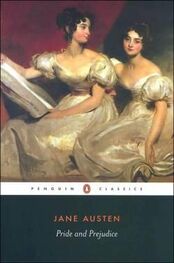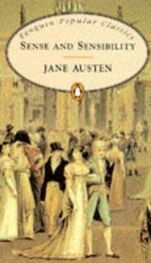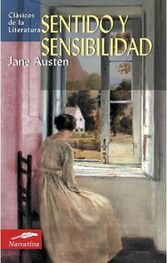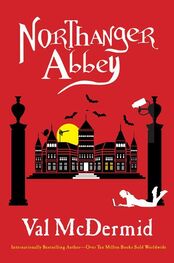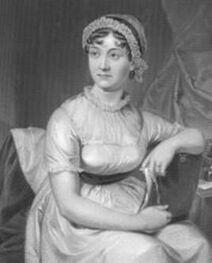The terrified general pronounced the name of Allen with an inquiring look; and here too Thorpe had learnt his error. The Allens, he believed, had lived near them too long, and he knew the young man on whom the Fullerton estate must devolve. The general needed no more. Enraged with almost everybody in the world but himself, he set out the next day for the abbey, where his performances have been seen.
I leave it to my reader's sagacity to determine how much of all this it was possible for Henry to communicate at this time to Catherine, how much of it he could have learnt from his father, in what points his own conjectures might assist him, and what portion must yet remain to be told in a letter from James. I have united for their case what they must divide for mine. Catherine, at any rate, heard enough to feel that in suspecting General Tilney of either murdering or shutting up his wife, she had scarcely sinned against his character, or magnified his cruelty.
Henry, in having such things to relate of his father, was almost as pitiable as in their first avowal to himself. He blushed for the narrow-minded counsel which he was obliged to expose. The conversation between them at Northanger had been of the most unfriendly kind. Henry's indignation on hearing how Catherine had been treated, on comprehending his father's views, and being ordered to acquiesce in them, had been open and bold. The general, accustomed on every ordinary occasion to give the law in his family, prepared for no reluctance but of feeling, no opposing desire that should dare to clothe itself in words, could ill brook the opposition of his son, steady as the sanction of reason and the dictate of conscience could make it. But, in such a cause, his anger, though it must shock, could not intimidate Henry, who was sustained in his purpose by a conviction of its justice. He felt himself bound as much in honour as in affection to Miss Morland, and believing that heart to be his own which he had been directed to gain, no unworthy retraction of a tacit consent, no reversing decree of unjustifiable anger, could shake his fidelity, or influence the resolutions it prompted.
He steadily refused to accompany his father into Herefordshire, an engagement formed almost at the moment to promote the dismissal of Catherine, and as steadily declared his intention of offering her his hand. The general was furious in his anger, and they parted in dreadful disagreement. Henry, in an agitation of mind which many solitary hours were required to compose, had returned almost instantly to Woodston, and, on the afternoon of the following day, had begun his journey to Fullerton.
Mr. and Mrs. Morland's surprise on being applied to by Mr. Tilney for their consent to his marrying their daughter was, for a few minutes, considerable, it having never entered their heads to suspect an attachment on either side; but as nothing, after all, could be more natural than Catherine's being beloved, they soon learnt to consider it with only the happy agitation of gratified pride, and, as far as they alone were concerned, had not a single objection to start. His pleasing manners and good sense were self-evident recommendations; and having never heard evil of him, it was not their way to suppose any evil could be told. Goodwill supplying the place of experience, his character needed no attestation. "Catherine would make a sad, heedless young housekeeper to be sure," was her mother's foreboding remark; but quick was the consolation of there being nothing like practice.
There was but one obstacle, in short, to be mentioned; but till that one was removed, it must be impossible for them to sanction the engagement. Their tempers were mild, but their principles were steady, and while his parent so expressly forbade the connection, they could not allow themselves to encourage it. That the general should come forward to solicit the alliance, or that he should even very heartily approve it, they were not refined enough to make any parading stipulation; but the decent appearance of consent must be yielded, and that once obtained - and their own hearts made them trust that it could not be very long denied - their willing approbation was instantly to follow. His consent was all that they wished for. They were no more inclined than entitled to demand his money. Of a very considerable fortune, his son was, by marriage settlements, eventually secure; his present income was an income of independence and comfort, and under every pecuniary view, it was a match beyond the claims of their daughter.
The young people could not be surprised at a decision like this. They felt and they deplored - but they could not resent it; and they parted, endeavouring to hope that such a change in the general, as each believed almost impossible, might speedily take place, to unite them again in the fullness of privileged affection. Henry returned to what was now his only home, to watch over his young plantations, and extend his improvements for her sake, to whose share in them he looked anxiously forward; and Catherine remained at Fullerton to cry. Whether the torments of absence were softened by a clandestine correspondence, let us not inquire. Mr. and Mrs. Morland never did - they had been too kind to exact any promise; and whenever Catherine received a letter, as, at that time, happened pretty often, they always looked another way.
The anxiety, which in this state of their attachment must be the portion of Henry and Catherine, and of all who loved either, as to its final event, can hardly extend, I fear, to the bosom of my readers, who will see in the tell-tale compression of the pages before them, that we are all hastening together to perfect felicity. The means by which their early marriage was effected can be the only doubt: what probable circumstance could work upon a temper like the general's? The circumstance which chiefly availed was the marriage of his daughter with a man of fortune and consequence, which took place in the course of the summer - an accession of dignity that threw him into a fit of good humour, from which he did not recover till after Eleanor had obtained his forgiveness of Henry, and his permission for him "to be a fool if he liked it!"
The marriage of Eleanor Tilney, her removal from all the evils of such a home as Northanger had been made by Henry's banishment, to the home of her choice and the man of her choice, is an event which I expect to give general satisfaction among all her acquaintance. My own joy on the occasion is very sincere. I know no one more entitled, by unpretending merit, or better prepared by habitual suffering, to receive and enjoy felicity. Her partiality for this gentleman was not of recent origin; and he had been long withheld only by inferiority of situation from addressing her. His unexpected accession to title and fortune had removed all his difficulties; and never had the general loved his daughter so well in all her hours of companionship, utility, and patient endurance as when he first hailed her "Your Ladyship!" Her husband was really deserving of her; independent of his peerage, his wealth, and his attachment, being to a precision the most charming young man in the world. Any further definition of his merits must be unnecessary; the most charming young man in the world is instantly before the imagination of us all. Concerning the one in question, therefore, I have only to add - aware that the rules of composition forbid the introduction of a character not connected with my fable - that this was the very gentleman whose negligent servant left behind him that collection of washing-bills, resulting from a long visit at Northanger, by which my heroine was involved in one of her most alarming adventures.
The influence of the viscount and viscountess in their brother's behalf was assisted by that right understanding of Mr. Morland's circumstances which, as soon as the general would allow himself to be informed, they were qualified to give. It taught him that he had been scarcely more misled by Thorpe's first boast of the family wealth than by his subsequent malicious overthrow of it; that in no sense of the word were they necessitous or poor, and that Catherine would have three thousand pounds. This was so material an amendment of his late expectations that it greatly contributed to smooth the descent of his pride; and by no means without its effect was the private intelligence, which he was at some pains to procure, that the Fullerton estate, being entirely at the disposal of its present proprietor, was consequently open to every greedy speculation.
Читать дальше